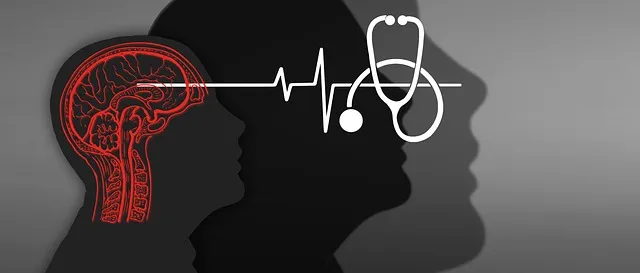The Littleton Kaiser Permanente mental health access center is a pioneering hub that uses Compassion Cultivation Practices to reduce stigma, educate the public, and improve access to care. By integrating holistic programs tailored to diverse needs, engaging local organizations, and employing creative campaigns with cultural sensitivity, the center normalizes conversations about mental well-being. Targeted messaging, compelling visuals, and measurable KPIs ensure effectiveness, making it a model for future facilities.
Public awareness campaigns play a pivotal role in shaping societal perceptions and behaviors, especially in sensitive areas like mental health. This article explores the development of such campaigns, highlighting innovative practices from the Littleton Kaiser Permanente Mental Health Access Center—a community-engaged model for improving access to care. We’ll discuss strategies for identifying target audiences, creating compelling content, and measuring success, offering insights into enhancing public understanding and support for mental health initiatives.
- Understanding the Role of Public Awareness Campaigns in Mental Health
- The Littleton Kaiser Permanente Mental Health Access Center: A Model for Community Engagement
- Identifying Target Audiences and Tailoring Messages Effectively
- Creative Strategies for Designing Engaging Campaign Materials
- Measuring Success and Evaluating Impact: Key Performance Indicators
Understanding the Role of Public Awareness Campaigns in Mental Health

Mental health awareness is a critical aspect of public well-being, and public awareness campaigns development plays a pivotal role in shaping societal perceptions and reducing stigma. The Littleton Kaiser Permanente mental health access center exemplifies a forward-thinking approach by integrating Compassion Cultivation Practices into their initiatives. This involves fostering empathy and understanding among community members, which is essential for creating an environment where individuals feel comfortable seeking support. By promoting Cultural Sensitivity in Mental Healthcare Practice, the center ensures that its services are accessible and relevant to diverse populations, addressing unique cultural needs and barriers to care.
These campaigns serve as a powerful tool to educate the public, dispel myths, and encourage early intervention. Through targeted messaging, they can reach individuals who may be reluctant to discuss mental health issues due to societal norms or personal experiences. By increasing visibility and normalizing conversations around mental well-being, public awareness campaigns development ultimately contributes to improved access to care, such as that offered at the Littleton Kaiser Permanente center, ensuring that more people have the opportunity to lead healthier, happier lives.
The Littleton Kaiser Permanente Mental Health Access Center: A Model for Community Engagement

The Littleton Kaiser Permanente Mental Health Access Center stands as a beacon of community engagement and holistic mental healthcare. This innovative center has carved out a unique niche, providing accessible services that cater to diverse psychological needs. By integrating various programs, it offers not just treatment but also preventive measures, such as stress management workshops, aimed at fostering self-esteem improvement and overall well-being. The center’s success lies in its collaborative approach, engaging local organizations and mental health professionals to conduct risk assessments and tailor interventions accordingly.
This comprehensive model ensures that the community is actively involved in promoting mental health literacy, early intervention, and sustainable recovery. Through such inclusive initiatives, the Littleton Kaiser Permanente Mental Health Access Center has set a benchmark for future healthcare facilities, demonstrating how community engagement can significantly impact public health outcomes.
Identifying Target Audiences and Tailoring Messages Effectively

Identifying target audiences is a critical step in designing successful public awareness campaigns. By understanding the demographics, interests, and challenges of your intended audience—such as the community surrounding the Littleton Kaiser Permanente mental health access center—you can tailor your messaging to resonate with them effectively. This personalized approach ensures that the campaign addresses their specific needs and concerns related to mental wellness.
For instance, when developing campaigns for a diverse population, incorporating diverse perspectives in both content creation and promotion is essential. Tailoring messages to include relatable examples, stories, and experiences can help foster connection and understanding. This strategy can be extended to various initiatives like Stress Management Workshops Organization or Self-Awareness Exercises, ensuring that participants feel seen and heard, thereby enhancing campaign effectiveness and engagement.
Creative Strategies for Designing Engaging Campaign Materials

Engaging public awareness campaigns require creative strategies to capture attention and convey essential messages effectively. When designing campaign materials, especially for sensitive topics like mental health, it’s crucial to balance information with artistic appeal. Incorporating compelling visuals, relatable narratives, and accessible language can make a significant impact on audience engagement. For instance, the Littleton Kaiser Permanente mental health access center has utilized impactful infographics and personal stories to raise awareness about available resources, demonstrating that creative approaches can effectively reach diverse communities.
Cultural sensitivity is a key aspect of these strategies. Recognizing and incorporating cultural nuances ensures that campaign messages resonate with various demographics. This approach, combined with highlighting burnout prevention strategies for healthcare providers, fosters a supportive environment where mental wellness becomes a priority. By integrating these elements, public awareness campaigns can be more inclusive, impactful, and successful in promoting mental health access and reducing stigma.
Measuring Success and Evaluating Impact: Key Performance Indicators

Measuring success and evaluating impact are vital components of any public awareness campaign, especially when focusing on mental health initiatives like those at the Littleton Kaiser Permanente access center. Key Performance Indicators (KPIs) provide a structured way to assess the effectiveness of these programs. For instance, tracking the number of individuals who engage with mental health resources post-campaign can offer insights into its reach and impact.
A well-designed Mental Health Education Program aimed at improving self-esteem and promoting emotional well-being might measure success through participant feedback and changes in psychological assessments over time. By employing these KPIs, organizations like the Littleton Kaiser Permanente center can ensure their campaigns are not just visible but also have a tangible effect on the target audience, fostering positive mental health outcomes.
Public awareness campaigns play a pivotal role in addressing mental health issues within communities. As highlighted by the successful Littleton Kaiser Permanente Mental Health Access Center model, community engagement is key to fostering open conversations and reducing stigma. By understanding target audiences and employing creative strategies, organizations can develop impactful campaigns that drive positive change. Measuring success through key performance indicators ensures these initiatives effectively reach those in need, ultimately enhancing mental well-being across diverse populations.






